
Pikounda Gorilla Camp: A Jungle Adventure in Gabon
Hidden deep within the lush rainforests of Gabon, Pikounda Gorilla Camp offers a unique and unforgettable experience for nature enthusiasts and adventure seekers. This remote camp provides an extraordinary opportunity to observe endangered western lowland gorillas in their natural habitat. The camp is part of the larger conservation efforts to protect these magnificent creatures and their environment. Visitors can engage in guided treks led by expert trackers who share their extensive knowledge of the gorillas and the surrounding ecosystem. The camp itself is designed to blend seamlessly with the natural surroundings, offering comfortable accommodations without compromising the wild experience. Guests stay in well-appointed tents that provide all the necessary amenities while ensuring minimal impact on the environment. The sounds of the forest, from the calls of exotic birds to the rustling of leaves, create a soothing backdrop for your stay. Meals at the camp feature local cuisine, offering a taste of Gabon's rich culinary traditions. Beyond gorilla tracking, Pikounda Gorilla Camp provides a variety of activities to immerse visitors in the wonders of the rainforest. Guided nature walks, bird watching, and river tours are just a few of the options available. Each activity is designed to educate and inspire, fostering a deeper appreciation for the delicate balance of this unique ecosystem. Whether you are an avid wildlife photographer or simply seeking a once-in-a-lifetime adventure, Pikounda Gorilla Camp promises an experience that will leave you with lasting memories.
Local tips in Pikounda Gorilla Camp
- Book your visit well in advance as the camp has limited capacity to ensure minimal impact on the environment.
- Pack light but include essentials like insect repellent, sturdy hiking boots, and long-sleeved clothing for treks.
- Respect the wildlife and maintain a safe distance from the gorillas; always follow the guide's instructions.
- Bring a good quality camera with a zoom lens to capture the incredible wildlife without disturbing it.
- Be prepared for variable weather conditions; the rainforest can be hot and humid, with sudden showers.
- Learn a few basic phrases in French, as it is the official language of Gabon and will help in communicating with locals.
Pikounda Gorilla Camp: A Jungle Adventure in Gabon
Hidden deep within the lush rainforests of Gabon, Pikounda Gorilla Camp offers a unique and unforgettable experience for nature enthusiasts and adventure seekers. This remote camp provides an extraordinary opportunity to observe endangered western lowland gorillas in their natural habitat. The camp is part of the larger conservation efforts to protect these magnificent creatures and their environment. Visitors can engage in guided treks led by expert trackers who share their extensive knowledge of the gorillas and the surrounding ecosystem. The camp itself is designed to blend seamlessly with the natural surroundings, offering comfortable accommodations without compromising the wild experience. Guests stay in well-appointed tents that provide all the necessary amenities while ensuring minimal impact on the environment. The sounds of the forest, from the calls of exotic birds to the rustling of leaves, create a soothing backdrop for your stay. Meals at the camp feature local cuisine, offering a taste of Gabon's rich culinary traditions. Beyond gorilla tracking, Pikounda Gorilla Camp provides a variety of activities to immerse visitors in the wonders of the rainforest. Guided nature walks, bird watching, and river tours are just a few of the options available. Each activity is designed to educate and inspire, fostering a deeper appreciation for the delicate balance of this unique ecosystem. Whether you are an avid wildlife photographer or simply seeking a once-in-a-lifetime adventure, Pikounda Gorilla Camp promises an experience that will leave you with lasting memories.
When is the best time to go to Pikounda Gorilla Camp?
Iconic landmarks you can’t miss
Sibang Arboretum
Sibang Arboretum in Libreville: A lush oasis of biodiversity and tranquility, perfect for nature lovers and those seeking peace in Gabon's vibrant landscape.
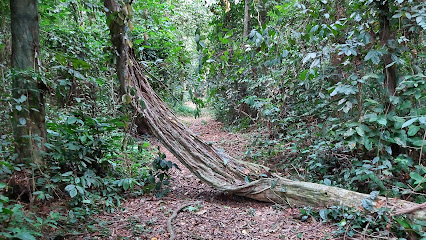
Village des Artisans
Explore the vibrant Village des Artisans in Libreville for unique Gabonese handicrafts and an authentic cultural experience.
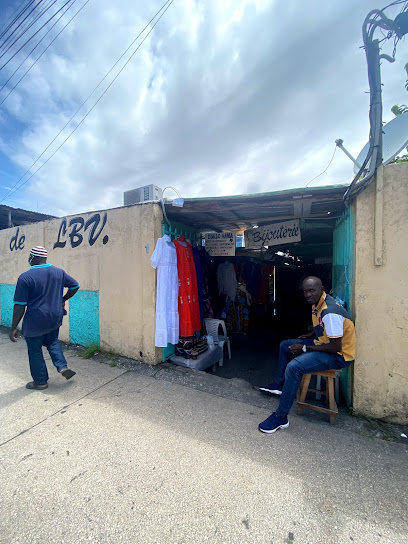
Akanda National Park
Explore Akanda National Park, a stunning natural oasis in Libreville, Gabon, rich in biodiversity and breathtaking landscapes.
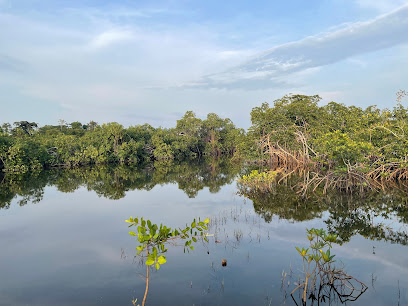
Lopé National Park
Explore the stunning biodiversity and scenic beauty of Lopé National Park, Gabon's UNESCO World Heritage treasure.
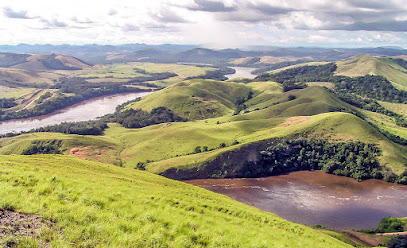
Liana Bridge of Poubara
Explore the breathtaking beauty of Liana Bridge of Poubara, a unique tourist attraction in Gabon's lush rainforest offering adventure and stunning views.
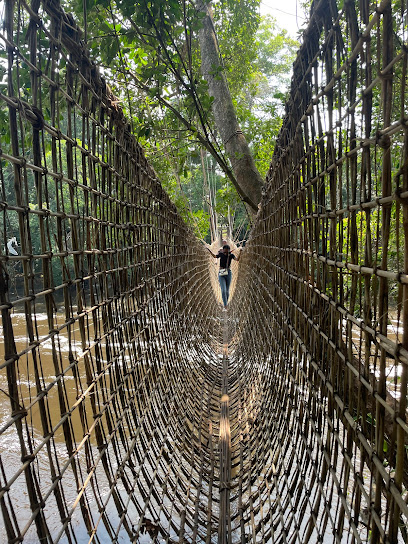
Parc de la Lekedi
Discover the breathtaking landscapes and vibrant wildlife of Parc de la Lekedi, Gabon's premier wildlife park, where adventure awaits in nature's sanctuary.
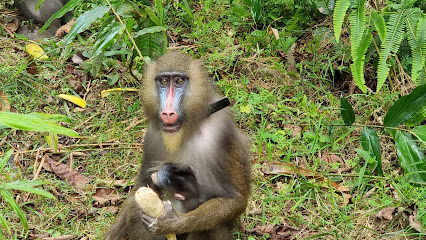
Minkébé National Park
Explore the breathtaking biodiversity and stunning landscapes of Minkébé National Park, a haven for eco-tourists and wildlife enthusiasts in Gabon.
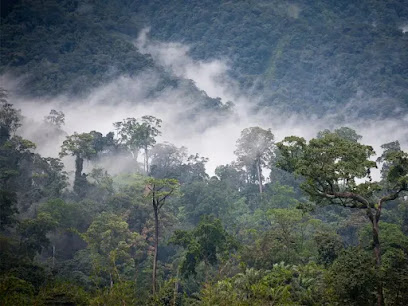
Pongara Lodge
Discover the perfect blend of luxury and nature at Pongara Lodge, where tranquility meets unforgettable wildlife experiences in Pointe Pongara.
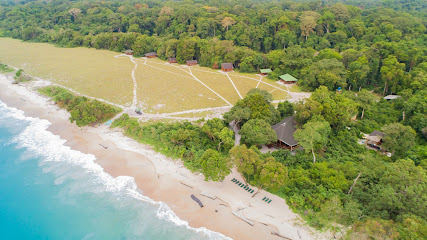
Loango national Park, Lodge & wildlife camps
Explore the lush jungles and stunning coastlines of Loango National Park, a wildlife paradise in Gabon rich with adventure and natural beauty.
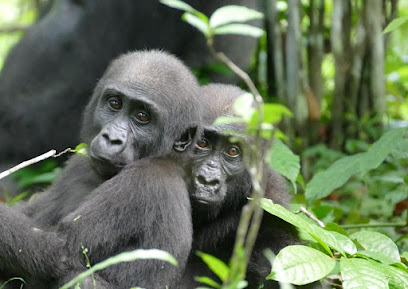
Clark
Discover the tranquil beauty of the Clark Shrine in Libreville, a spiritual haven amidst lush greenery, perfect for reflection and cultural exploration.
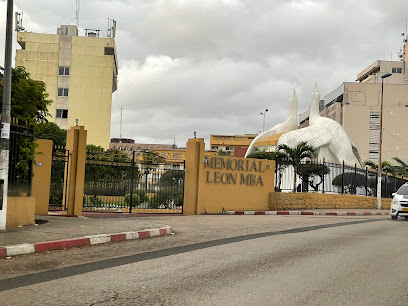
Unmissable attractions to see
Pongara Lodge
Escape to Pongara Lodge in Gabon's Pongara National Park: Where luxury meets pristine beaches and extraordinary wildlife encounters await.
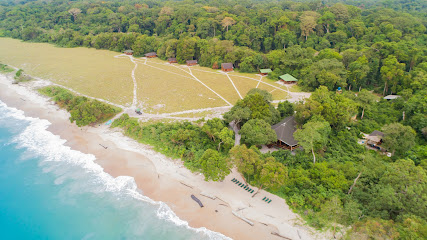
Loango Camps
Discover Loango National Park: Where pristine beaches meet lush rainforests, offering unparalleled wildlife encounters in Gabon's untouched wilderness.
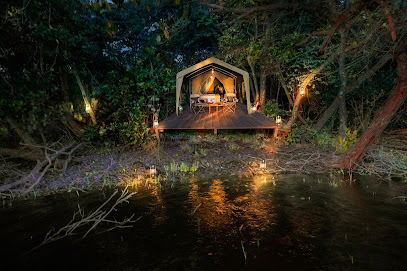
Essential places to dine
BANTU Restaurant – Restaurant – Bar – Pizzeria
Experience exquisite pizza and vibrant nightlife at BANTU Restaurant in Libreville - your perfect dining destination.
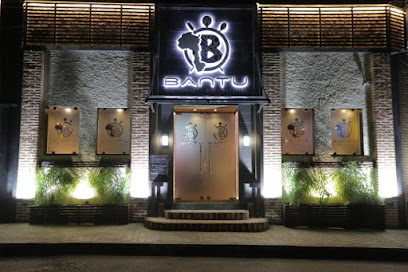
La Voile Rouge
Experience exquisite dining at La Voile Rouge in Libreville - savor local flavors amidst an inviting atmosphere.
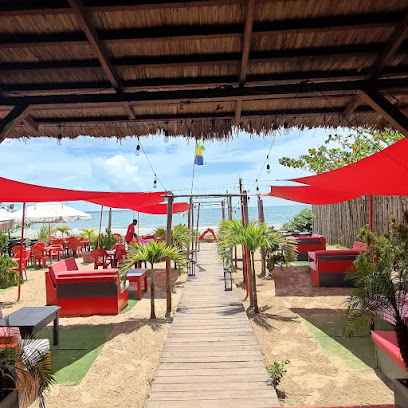
Beach Club
Discover the vibrant fusion of French and African cuisine at Beach Club in Libreville—an unforgettable dining experience awaits.
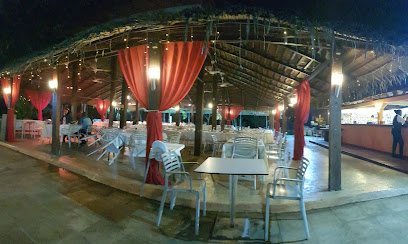
Marina Social Beach
Discover delicious tapas and stunning ocean views at Marina Social Beach in Port-Gentil - an unmissable culinary escape.
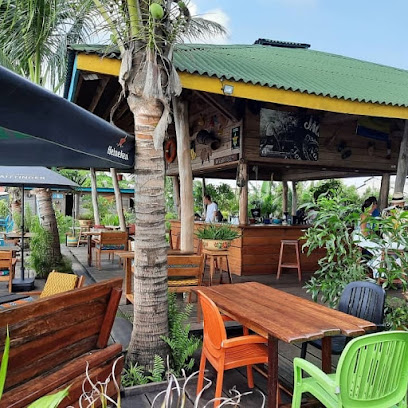
Bodega Mbolo
Discover the flavors of Gabon at Bodega Mbolo - where local cuisine meets vibrant dining in Libreville.
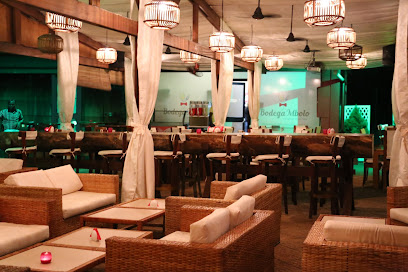
Amigo's Restaurant
Experience the vibrant culinary scene at Amigo's Restaurant in Libreville, offering delicious local dishes in a welcoming atmosphere.
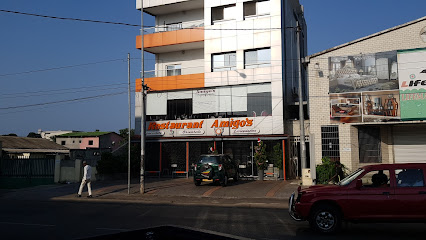
L'Odika
Discover the rich flavors of Gabon at L'Odika – where authentic African cuisine meets warm hospitality in Libreville.
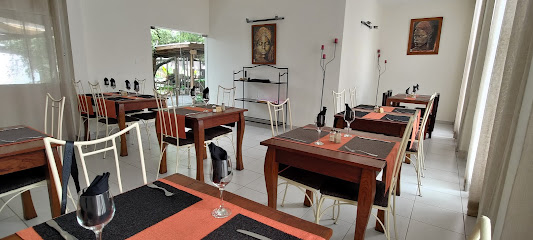
L’iroko
Discover L’iroko in Libreville - where local flavors meet international cuisine in a stylish lounge setting.
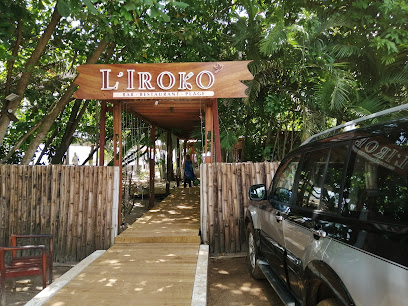
Restaurant LYNN'S
Discover exquisite flavors at Restaurant LYNN'S in Libreville - where local meets international cuisine in a warm and inviting setting.
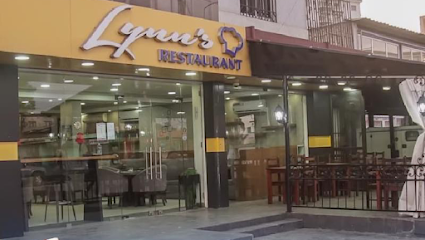
Glass - Libreville
Discover authentic Gabonese cuisine at Glass - Libreville, where every dish tells a story of local tradition and flavor.
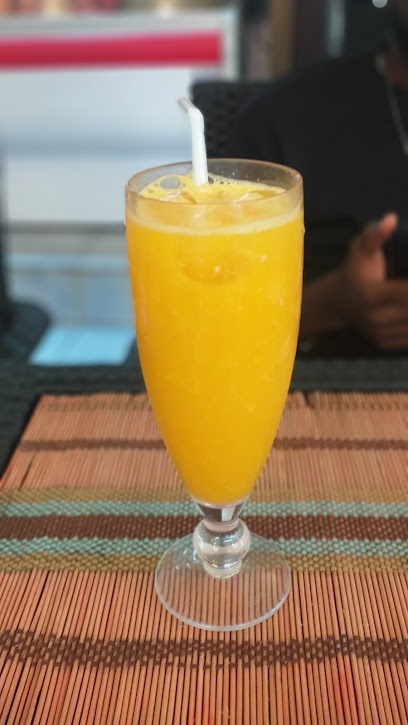
River Lodge Resort
Discover tranquility at River Lodge Resort in Point Denis - where nature meets comfort amidst Gabon's stunning landscapes.
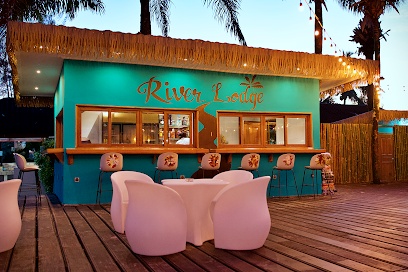
GOYAWOK
Discover authentic Chinese flavors at Goyawok in Libreville – where culinary tradition meets local hospitality.
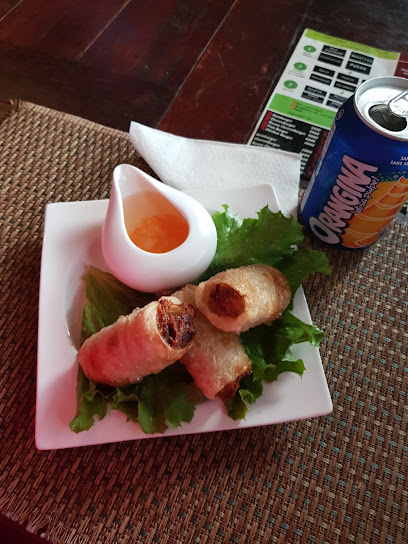
Big Mama
Experience the vibrant flavors of Gabon at Big Mama in Libreville - where tradition meets taste in every delightful dish.
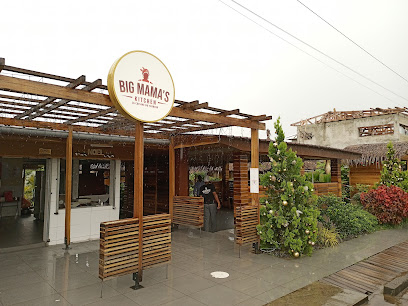
Restaurant Nouveau Petit Chalut
Experience authentic Gabonese cuisine at Restaurant Nouveau Petit Chalut in Libreville - where fresh ingredients meet vibrant flavors.
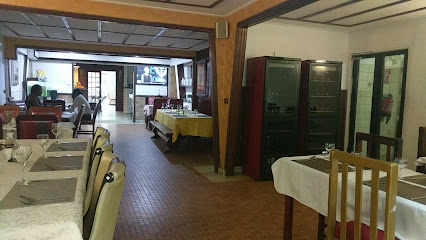
La Terrasse
Discover exquisite flavors at La Terrasse in Libreville - where local cuisine meets international delights amidst a warm ambiance.
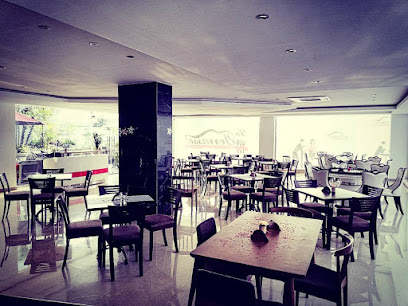
Markets, malls and hidden boutiques
Village des Artisans
Discover the rich cultural heritage of Gabon at the Village des Artisans, a vibrant market filled with exquisite handicrafts and local artistry.
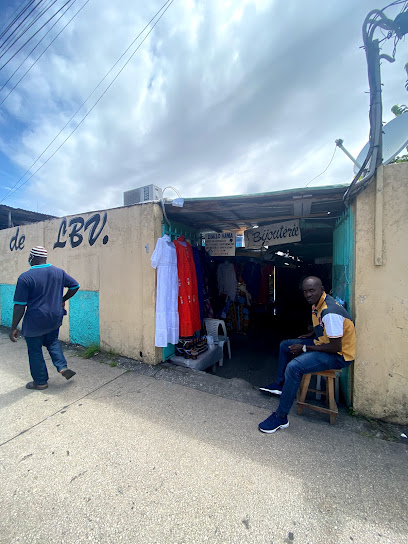
Cathédrale Sainte Marie
Discover the breathtaking Cathédrale Sainte Marie, a neo-Gothic masterpiece in Libreville, offering spiritual solace and cultural insight.
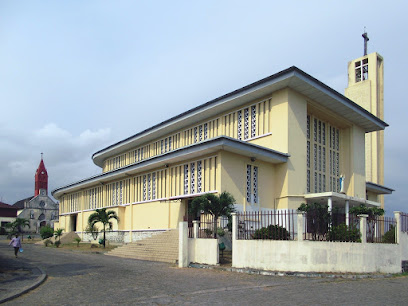
Akanda National Park
Explore the breathtaking landscapes and rich biodiversity of Akanda National Park, a hidden gem on Gabon's stunning coast.
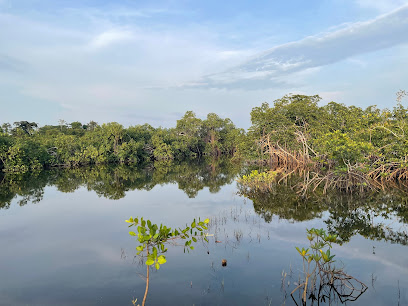
Lopé National Park
Discover the breathtaking biodiversity and cultural heritage of Lopé National Park, a hidden paradise for nature lovers in Gabon.
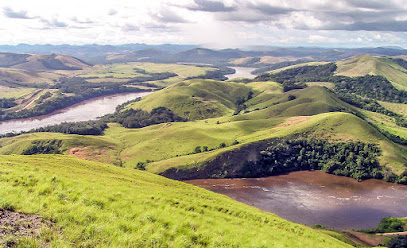
LES CHOCOLATS GABONAIS DE JULIE
Experience the rich flavors of Gabon at Les Chocolats Gabonais de Julie, where artisanal chocolate meets local craftsmanship.
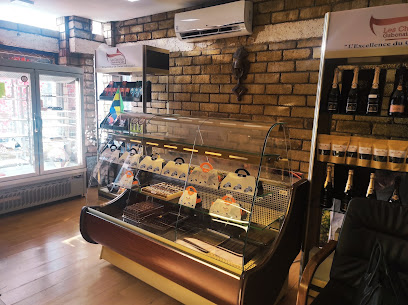
Gabon Travel and Tours
Explore Gabon's pristine landscapes and vibrant culture with Gabon Travel and Tours, your gateway to unforgettable adventures.
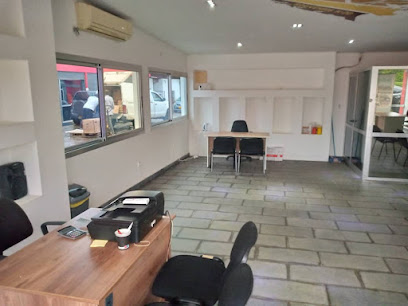
Les petits pots de l'Ogooué
Discover the authentic flavors of Gabon at Les Petits Pots de l'Ogooué, a charming deli in Libreville serving delightful local delicacies.

Loango national Park, Lodge & wildlife camps
Experience the breathtaking landscapes and rich wildlife of Loango National Park, a premier destination for nature lovers in Gabon.
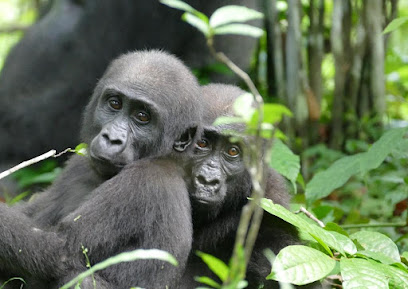
Village artisanal face gabon meca
Explore the vibrant artistry of Village Artisanal Face Gabon Meca, where unique handcrafted treasures meet environmental sustainability in Libreville.
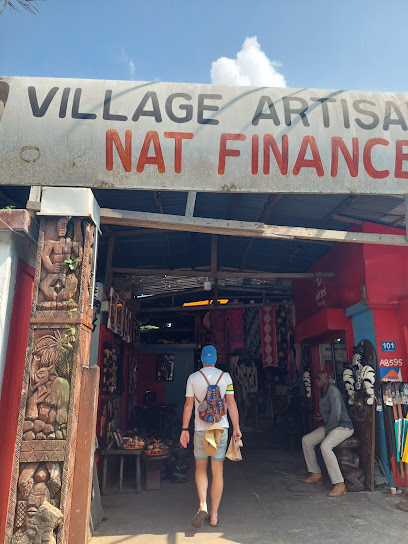
Essential bars & hidden hideouts
BANTU Restaurant – Restaurant – Bar – Pizzeria
Discover the vibrant culinary scene at BANTU Restaurant in Libreville, offering delicious pizzas and a lively bar atmosphere in the heart of Gabon.
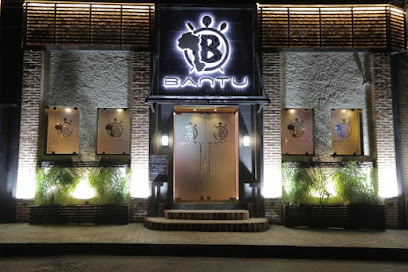
Le Moulin d'Okala
Experience the vibrant flavors of Gabon at Le Moulin d'Okala, a culinary gem in Libreville with exquisite pastries, pizza, and more.
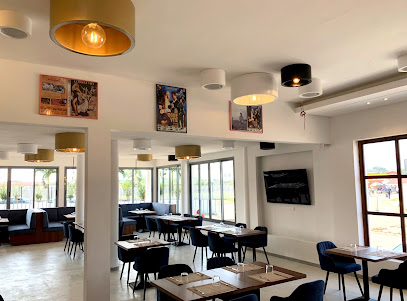
Marina Social Beach
Experience a culinary delight at Marina Social Beach, where exquisite tapas meet stunning waterfront views in Port-Gentil.
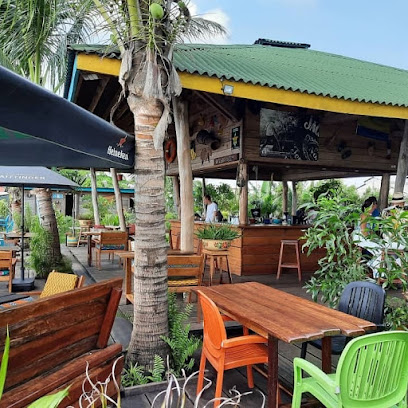
Bodega Mbolo
Experience the vibrant flavors and lively atmosphere at Bodega Mbolo, a top bar and restaurant in Libreville, Gabon, perfect for all taste buds.
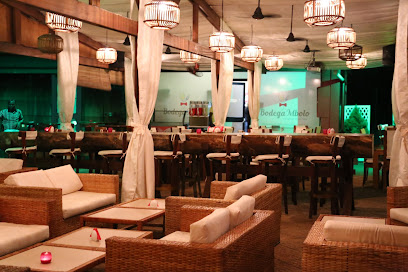
L’iroko
Discover L’iroko in Libreville, a stylish lounge offering a fusion of local and international cuisine within a vibrant atmosphere, perfect for any occasion.
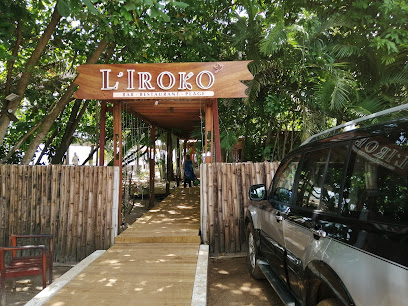
Yoka Sports Bar
Experience the vibrant nightlife of Libreville at Yoka Sports Bar, where delicious drinks and lively entertainment await you in a cozy setting.
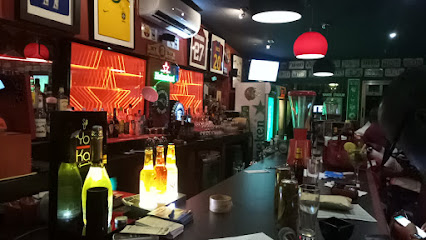
The Lantern
Discover the vibrant flavors of Libreville at The Lantern, a tapas bar offering a unique blend of local and international cuisine in a warm atmosphere.
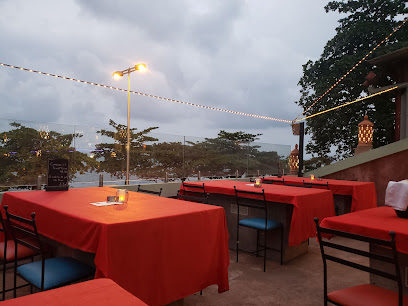
Joe's Restaurant & Bar
Discover the culinary delights of Port-Gentil at Joe's Restaurant & Bar, where local flavors meet warm hospitality in a cozy atmosphere.
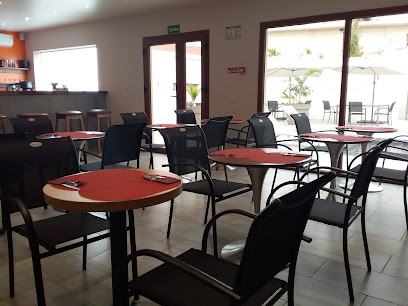
Yoka_Lounge
Discover the tranquility of Yoka Lounge in Libreville, a perfect spot for relaxation and socializing in a stylish setting.
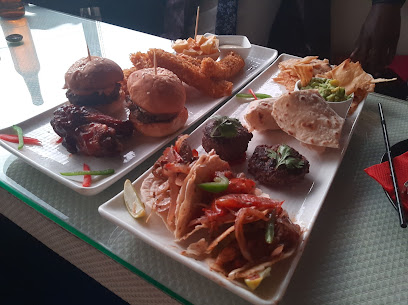
Idiora Restaurant-Bar
Savor the essence of Gabonese cuisine with a contemporary twist at Idiora Restaurant-Bar in Libreville.
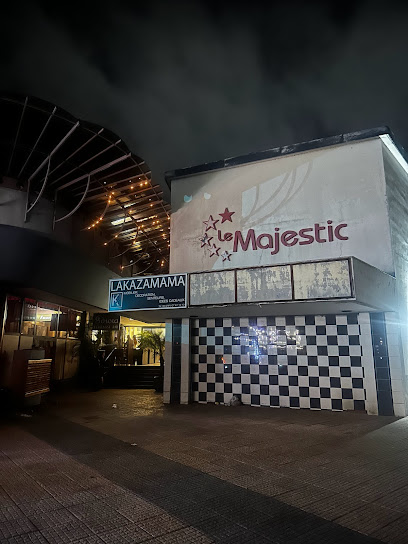
AKWABA Lounge
Discover Akwaba Lounge in Libreville – A family-friendly restaurant offering a delightful mix of Gabonese and international cuisine in a warm atmosphere.
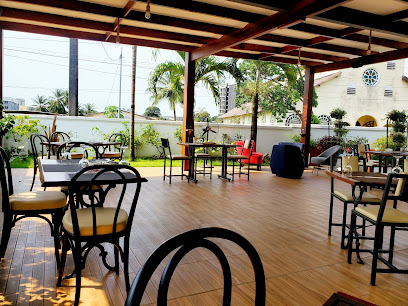
FreeZone Food
Experience the vibrant culinary scene at FreeZone Food, a premier restaurant and lounge in Libreville offering local and international delights.
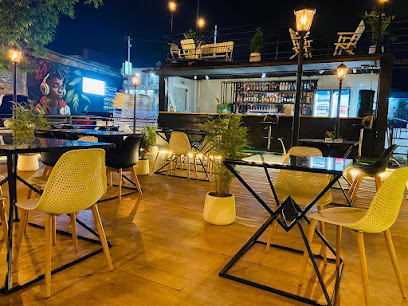
Le congo
Experience the vibrant nightlife of Libreville at Le Congo, a cultural hub bar offering a taste of Gabon's rich heritage and lively atmosphere.

Snack Bar
Experience the lively nightlife at Snack Bar in Libreville, where locals and tourists gather for drinks, music, and unforgettable memories.
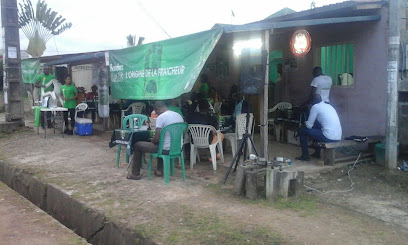
Local Phrases about Pikounda Gorilla Camp
-
- HelloMbolo
[m-boh-loh] - GoodbyeO dabo
[oh dah-boh] - YesEwe
[eh-weh] - NoTsi
[chee] - Please/You're welcomeNtang
[en-tahng] - Thank youMèsi
[meh-see] - Excuse me/SorryNzambe
[n-zahm-beh] - How are you?I ni jè?
[ee nee zhay] - Fine. And you?Nlo. Mi jè?
[n-loh. mee zhay] - Do you speak English?I ni kònìgwa màlèèngèlè?
[ee nee koh-nee-gwah mah-leh-leh] - I don't understandI ni kònìgwa nko?
[ee nee koh-nee-gwah n-koh]
- HelloMbolo
-
- I'd like to see the menu, pleaseMina ko kweyìyì nze, ntang
[mee-nah koh kweh-yee-yee n-zeh, en-tahng] - I don't eat meatI ni kònìgwa ndolo
[ee nee koh-nee-gwah n-doh-loh] - Cheers!Nzèla!
[n-zeh-lah] - I would like to pay, pleaseMina ko lèmyì, ntang
[mee-nah koh leh-myee, en-tahng]
- I'd like to see the menu, pleaseMina ko kweyìyì nze, ntang
-
- Help!Mwana!
[mwah-nah] - Go away!Keba!
[keh-bah] - Call the Police!Tènda mpolisi!
[tehn-dah m-poh-lee-see] - Call a doctor!Tènda mòdòkò!
[tehn-dah moh-doh-koh] - I'm lostI ni kònìgwa ntolo
[ee nee koh-nee-gwah n-toh-loh] - I'm illI ni kònìgwa nlo
[ee nee koh-nee-gwah n-loh]
- Help!Mwana!
-
- I'd like to buy...Mina ko lèmyì wè...
[mee-nah koh leh-myee weh] - I'm just lookingI ni kònìgwa ndèndè
[ee nee koh-nee-gwah n-dehn-dehn] - How much is it?Yi dèyi?
[yee deh-yee] - That's too expensiveA kweyìyì ya muni
[ah kweh-yee-yee yah moo-nee] - Can you lower the price?I ni kònìgwa kònìyì kweyìyì?
[ee nee koh-nee-gwah koh-nee-yee kweh-yee-yee]
- I'd like to buy...Mina ko lèmyì wè...
-
- What time is it?Mimìya yi dèyi?
[mee-mee-yah yee deh-yee] - It's one o'clockNdèyi ya mbùya
[n-deh-yee yah m-boo-yah] - Half past (10)Mbùya na mwa
[m-boo-yah nah mwah] - MorningBùya
[boo-yah] - AfternoonSìsì
[see-see] - EveningMàlèè
[mah-leh-leh] - YesterdayNkulu
[n-koo-loo] - TodayNzùkù
[n-zoo-koo] - TomorrowNzòlò
[n-zoh-loh] - 1Mbùya
[m-boo-yah] - 2Mbàlà
[m-bah-lah] - 3Mbwètè
[m-bweh-teh] - 4Nkèbe
[n-keh-beh] - 5Nsádi
[n-sah-dee] - 6Ntaná
[n-tah-nah] - 7Ntaná na mbùya
[n-tah-nah nah m-boo-yah] - 8Ntaná na mbàlà
[n-tah-nah nah m-bah-lah] - 9Ntaná na mbwètè
[n-tah-nah nah m-bweh-teh] - 10Ntaná na nkèbe
[n-tah-nah nah n-keh-beh]
- What time is it?Mimìya yi dèyi?
-
- Where's a/the...?I ni kònìgwa...
[ee nee koh-nee-gwah] - What's the address?I ni kònìgwa dèyi ya...
[ee nee koh-nee-gwah deh-yee yah] - Can you show me (on the map)?I ni kònìgwa bàmi...
[ee nee koh-nee-gwah bah-mee] - When's the next (bus)?I ni kònìgwa mwa...
[ee nee koh-nee-gwah mwah] - A ticket (to ....)Biléti (mbè...)
[bee-leh-tee m-beh]
- Where's a/the...?I ni kònìgwa...
History of Pikounda Gorilla Camp
-
Pikounda Gorilla Camp, located in the lush rainforests of Gabon, was established in the early 2000s as part of a concerted effort to protect the critically endangered western lowland gorilla. The camp was founded by a coalition of conservationists and local government officials, aiming to create a sanctuary for these magnificent creatures while promoting eco-tourism in the region.
-
In 2001, Gabon became one of the first countries to join the Great Apes Survival Partnership (GRASP), an initiative launched by the United Nations to protect great apes and their habitats. Pikounda Gorilla Camp became an integral part of this initiative, serving as a model for conservation efforts and sustainable tourism practices in Central Africa.
-
Pikounda Gorilla Camp gained international attention in 2005 when researchers documented unique behaviors among the resident gorillas, including the use of tools for foraging and complex social interactions. These findings were published in several scientific journals, highlighting the camp's importance as a research hub for primatologists and conservation biologists.
-
From its inception, Pikounda Gorilla Camp has worked closely with local communities to promote sustainable tourism and provide economic opportunities. Training programs were established to educate local residents on guiding, hospitality, and conservation, ensuring that the benefits of tourism were shared with the community. This collaborative approach has been instrumental in fostering a sense of stewardship for the natural environment among the local population.
-
Despite its successes, Pikounda Gorilla Camp has faced numerous challenges, including poaching, habitat destruction, and disease outbreaks among the gorilla population. In response, the camp has implemented rigorous anti-poaching patrols, habitat restoration projects, and health monitoring programs. These efforts have been supported by international conservation organizations and have contributed to the stabilization of the gorilla population in the area.
-
Gorillas hold a special place in the cultural heritage of the people of Gabon. They are often featured in local folklore and traditional beliefs, symbolizing strength, wisdom, and protection. Pikounda Gorilla Camp has embraced this cultural significance, incorporating traditional knowledge and practices into its conservation strategies and educational programs. Visitors to the camp have the opportunity to learn about these cultural connections through guided tours and community interactions.
Pikounda Gorilla Camp Essentials
-
Pikounda Gorilla Camp is located in the Lopé National Park in Gabon. The nearest airport is Léon-Mba International Airport in Libreville, the capital of Gabon. From Libreville, you can take a domestic flight to Lopé Airport. Alternatively, you can travel by train from Libreville to Lopé, which is a more scenic but longer journey. The train ride takes around 6-8 hours, passing through lush landscapes and offering glimpses of the local wildlife. Once in Lopé, a 4x4 vehicle is required to reach Pikounda Gorilla Camp due to the rough terrain.
-
Within Pikounda Gorilla Camp and the surrounding Lopé National Park, transportation is mainly by 4x4 vehicles, which are necessary to navigate the rugged terrain. Guided tours and safaris typically provide transportation as part of their packages. Walking safaris are also popular for getting up close with nature. There are no public transportation options within the park, so it is essential to arrange transport in advance, either through your accommodation or a tour operator.
-
The official currency in Gabon is the Central African CFA Franc (XAF). Credit cards are accepted in larger establishments in Libreville, but they are less commonly used in rural areas like Lopé National Park. It is advisable to carry sufficient cash for your needs while at Pikounda Gorilla Camp. ATMs are available in Libreville, but it's wise to withdraw enough cash before heading to the camp. Ensure your cash is in smaller denominations, as change might be hard to come by in remote areas.
-
Pikounda Gorilla Camp and Lopé National Park are generally safe for tourists. However, it is crucial to follow the guidelines provided by your guides and camp staff to ensure safety around wildlife. Avoid wandering off alone, especially after dark. While crime rates targeting tourists are low in the park, it is advisable to be vigilant and keep valuables secure. In Libreville, exercise standard precautions such as avoiding poorly lit areas at night and being aware of your surroundings.
-
In case of an emergency at Pikounda Gorilla Camp, notify camp staff immediately. They are trained to handle emergencies and can contact park authorities or medical services as needed. For medical emergencies, the closest facilities are in the town of Lopé, but more serious cases may require transport to Libreville. Ensure you have travel insurance that covers medical evacuation. Emergency numbers in Gabon include 177 for medical emergencies and 1730 for police assistance.
-
Fashion: Do wear light, breathable clothing suitable for a tropical climate, and bring sturdy boots for trekking. Don't wear bright colors that could attract insects or startle wildlife. Religion: Do respect local traditions and practices. While Gabon is a secular country, it is vital to be respectful at any religious or cultural sites you may visit en route. Public Transport: Do be patient, as transport schedules can be less predictable. Don't expect the same level of punctuality as in more urbanized areas. Greetings: Do greet people with a friendly 'Bonjour'. A handshake is common, but avoid overly enthusiastic greetings. Eating & Drinking: Do try local dishes and follow your guide’s advice on safe places to eat. Don't drink tap water; always opt for bottled or purified water.
-
To experience Pikounda Gorilla Camp like a local, participate in guided tours led by local experts who can provide insights into the flora and fauna. Engage with the local Bantu and Pygmy communities, who often share their traditional knowledge and practices. Visit the Lopé National Park Museum to learn about the region's history and biodiversity. For a unique experience, consider a night safari to observe nocturnal wildlife. Always show respect for local customs and the environment.
Nearby Cities to Pikounda Gorilla Camp
-
Things To Do in Libreville
-
Things To Do in Ribeira Afonso
-
Things To Do in Angolares
-
Things To Do in Mbini
-
Things To Do in Sao Tome City
-
Things To Do in Trindade
-
Things To Do in Guadalupe
-
Things To Do in Neves
-
Things To Do in Santa Catarina
-
Things To Do in Santo Antonio
-
Things To Do in Cabinda
-
Things To Do in Bitam
-
Things To Do in Kribi
-
Things To Do in Ebolowa
-
Things To Do in Luba






